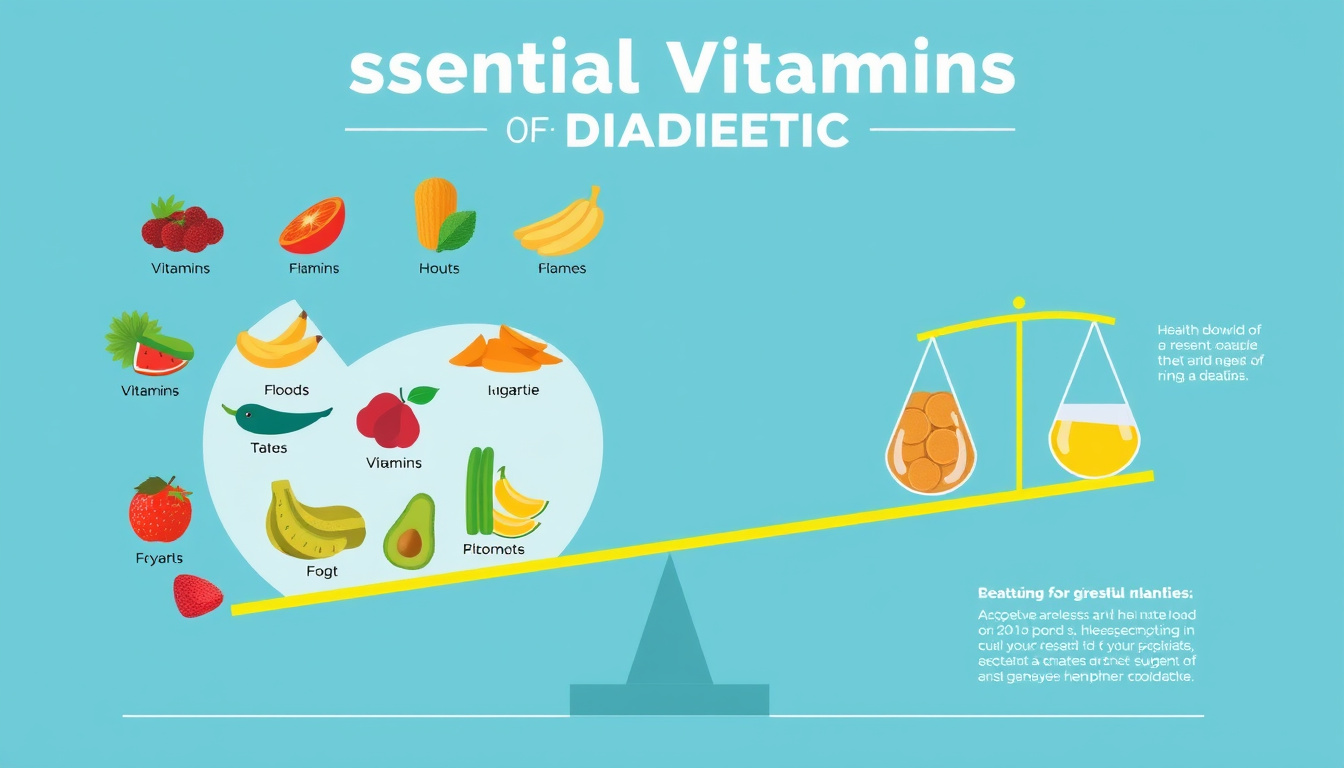Essential Vitamins for Diabetics: Boost Your Health and Manage Blood Sugar Levels Naturally
 Jill Smith
Jill Smith
Diabetes management goes beyond just monitoring blood sugar levels; incorporating the right vitamins and supplements can play a crucial role in promoting overall health and potentially supporting glucose control. Here, we explore essential vitamins for diabetics, their benefits, and recommendations for safe supplementation.

Understanding the Role of Vitamins in Diabetes Management
Vitamins and minerals are vital for various bodily functions, including metabolism and the maintenance of healthy blood sugar levels. Although dietary supplements are often marketed as aids for diabetes management, the American Diabetes Association (ADA) emphasizes that it's essential to approach supplementation with caution. The ADA’s "Standards of Care" highlight that while some vitamins can support health, they are not proven effective in replacing medications or as primary therapies for diabetes.
Common Vitamins Beneficial for Diabetics
-
Vitamin D:
- Importance: Vitamin D plays a significant role in insulin sensitivity and can help regulate blood glucose levels. Many individuals, including those with diabetes, may have low levels of vitamin D, which can impact overall health.
- Sources: Fortified foods, fatty fish, and sunlight exposure are excellent natural sources.
-
Vitamin B12:
- Importance: Commonly associated with energy metabolism, vitamin B12 is essential for nerve health, particularly important for diabetics at risk of neuropathy.
- Sources: Meat, fish, dairy, and fortified cereals are rich in B12. 3. Magnesium:
- Importance: Magnesium is involved in more than 300 enzymatic processes, including those that utilize insulin for glucose metabolism. Low magnesium levels can negatively affect insulin sensitivity.
- Sources: Leafy greens, nuts, whole grains, and legumes are high in magnesium.
-
Alpha Lipoic Acid (ALA):
- Importance: ALA is an antioxidant that may help reduce symptoms of diabetic neuropathy and has been studied for its potential to improve insulin sensitivity.
- Sources: Found in small amounts in spinach, broccoli, and potatoes.
Multivitamin Use
For some individuals, particularly those with dietary restrictions (such as strict vegetarians) or low-calorie diets, a multivitamin can help fill nutritional gaps, as emphasized in the ADA guidelines. However, it is crucial that multivitamins are considered only if there is a diagnosed deficiency or increased risk for one.
Safety Considerations for Taking Vitamins
While vitamins can be beneficial, it's crucial to consult with a healthcare provider before beginning any supplementation regimen, especially for those with diabetes. Unregulated supplements can interact with medications, potentially leading to hypoglycemia or hyperglycemia.
Key Considerations:
- Quality: Look for products that have been verified by third-party organizations (such as the United States Pharmacopeia) to ensure quality and safety.
- Discuss with Healthcare Providers: Always inform your doctor about any supplements you are considering, particularly if you take direct medication for diabetes management.
Natural Sources vs. Supplements
While supplements are tempting for their convenience, obtaining vitamins from whole foods is often preferable. Whole foods provide not only vitamins but also other beneficial compounds, like phytochemicals, which work synergistically to promote health. A balanced diet rich in fruits, vegetables, whole grains, and lean proteins should be the foundation before considering supplements.
Summary
In managing diabetes, vitamins such as D, B12, magnesium, and ALA can support overall health and insulin function. However, it is essential to prioritize whole food sources and consult healthcare professionals regarding supplementation. By combining a nutrient-rich diet with appropriate medical care, individuals with diabetes can effectively manage their condition while enhancing their quality of life.
Turn Back the Clock: Unlock the Secrets to Reverse Diabetes in 30 Days. Don't Wait! Download Now
Subscribe to my newsletter
Read articles from Jill Smith directly inside your inbox. Subscribe to the newsletter, and don't miss out.
Written by
